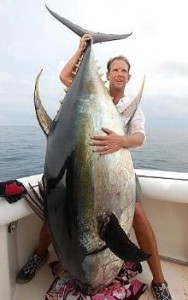Hi My Name Isn’t
Hi My Name Isn’t. The adult class I led at my former church, chose to wear nametags. They saw it as a way to welcome guests and break down the barriers for people who didn’t attend as often. There were always mornings when non-conformists wouldn’t “tag up,” but that was okay. It actually helped us learn each other’s names and guests could more quickly connect with established members.
Name Isn’t. The adult class I led at my former church, chose to wear nametags. They saw it as a way to welcome guests and break down the barriers for people who didn’t attend as often. There were always mornings when non-conformists wouldn’t “tag up,” but that was okay. It actually helped us learn each other’s names and guests could more quickly connect with established members.
One Sunday, I noticed a visitor introducing himself to our regulars. He stuck his hand into a group of guys and confidently said, “Good morning Scott!” The person he was addressing chuckled out, “Hi … but my name is Roger.” He turned to another man in the circle and ventured, “So John …” At that moment laughter erupted from the group and the man he was addressing said, “I’m so sorry, I’m Kenny.” The four friends, guffawed and pounded each other’s shoulders. I realized what had happened, but it was too late. In friendly jest, several of the men had switched nametags. They apologized and explained to our guest, but finished out the morning wearing the wrong tags.
Their harmless prank had not been intended for the guest … and that was the biggest issue. They had no intentions concerning guests. They were not thinking of them at all. They had forgotten that the nametags were a vital part of our welcome. A good tool turned (unintentionally) into a glaring sign that said … “It’s hard to get in.” Our guest never returned.
Machetetiquette
Machetetiquette is my new word for a behavior I’ve observed on the roadways of Panama. I combined two words which are defined below with the help of Merriam-Webster:
is my new word for a behavior I’ve observed on the roadways of Panama. I combined two words which are defined below with the help of Merriam-Webster:
Panamanians seem to have rules indicating the proper and polite way to carry a machete. A machete has a handle. Most of us carry things by their handles. Not so for the Panamanian and his machete. Here are some carrying positions I’ve observed:
- Held by the blade, point and sharp edge towards the carrier – handle down
- Held by the blade near the handle (sometimes wrapped with cloth) – handle facing out
- Held by the handle, but upside down and facing back
Words have a lot in common with machetes. They can be helpful tools or harmful weapons and we need to be conscious of how we carry them. The careless use of words can signal aggression when none is intended. As we continue to think about how to improve our welcome, let’s put our words into the mix. I have no negative circumstances in mind, but offer the encouragement the Apostle Paul gave the church at Colossae:
Be wise in the way you act toward outsiders; make the most of every opportunity. Let your conversation be always full of grace, seasoned with salt, so that you may know how to answer everyone. Colossians 4:5–6
Hurdles

When I was growing up, going out for track meant being tested in all events and competing in the areas of least incompetence. So, despite being “solidly” built and somewhat uncoordinated, I still had to run the hurdles. I had to run right alongside the kid whose legs started just below his armpits. It was hard to get up out of the dust and challenge another towering obstacle while others were floating across the finish line.
In a national survey on church attendance, first-time guests revealed obstacles they experienced to feeling welcome. Here are three worth examining:
- People took all the aisle seats making it hard/awkward to get to a seat
- People were gathered in cliques talking and laughing … we felt ignored
- People covered seats around them with their stuff … signaling we weren’t welcomed to sit by them
These could be hurdles for any guest … but especially for one who already feels vulnerable or shy. How could we help?
- If you need an isles seat, please feel free to take one. But watch for the guest – stand, smile, shake a hand motion to the seats beside you.
- Please enjoy your friends … that’s part of what makes Sunday morning great. But keep an eye out for the new person … the new potential friend.
- Become more Panamanian in your personal space requirement :). Place your items on the floor beneath your seat.
Let each of you look not only to his own interests, but also to the interests of others. Philippians 2:4
Obstacles

When I asked Will about the attraction of slogging through mud, he excitedly launched into a soliloquy on the wonders of the sport! It wasn’t just running in mud … it was scrambling over logs in mud, scaling walls covered in mud, crawling through drainage tubes half-filled with mud, jumping over burning logs in mud … and … well “So much more!” One day he rushed up to me and said, “You won’t believe what they did to us this Saturday!” The last pit on the grueling course had a maze of high voltage/low amperage wires dangling above it. Pushing your way through the cables resulted in a long series of harmless, but painful, stinging shocks. Maybe it was the charge he’d picked up, but Will was beaming. His conclusion? “Dude … it was awesome!”
Judging by the pictures Will continues to post, there are thousands of people who love to take on and conquer such obstacles. But when it comes to braving a new church … I have the feeling that the numbers are much lower. For many, just stepping inside a church can be a harrowing experience. The more hurdles they find inside the higher the probability that they won’t return. The hardest thing about the obstacles that keep newcomers from feeling welcome is that they’ve become invisible to those of us who regularly attend. This year as we concentrate on having a positive presence in our community, we’ll also be looking at ways to improve our welcome. Tune in next week!
Welcome one another as Christ has welcomed you, for the glory of God. Romans 15:7
Chasing Birds

I got invited “Deep Sea Fishing” and … well my mind conjured up something like this picture. I called to memory the beautifully plasticized Marlin that hung in my hometown grocery store. I could picture Daryl behind the meat counter reenacting “The Battle.” Some poor customer who had come in for fresh ground beef was getting old fish. Then I began imagining myself, center deck, lashed to the chair, the rod connecting me to some finned beast, twisted into a quivering horseshoe of tension. That dastardly denizen of the deep would not prevail … you need not have experience and skill to be a great fisherman!
Reality was somewhat different. I did catch a fish … the only fish. The Sierra must have been on the hook a while before the captain alerted us to pull in the line. He or she (it’s terribly hard to tell) did not put up much of a fight. Other than those ten second of excitement, reality was five hours of chasing gulls through choppy waters. The company was good, the day was beautiful, I loved being on the water … it just wasn’t what I’d expected. Expectations can be hard to manage.
I find among my fellow humans a general expectation, even a sense of entitlement, to receive great good. When the cosmos doesn’t deliver, we all feel horribly put upon. The Bible tells us a starkly different story. No person should expect good. All have sinned and fall short of the glory of God. The wages of that sin is eternal spiritual death. (Romans 3:23 & 6:23)
“the wages of sin is death” concludes with the Good News, “but the gift of God is eternal life in Christ Jesus our Lord.”

